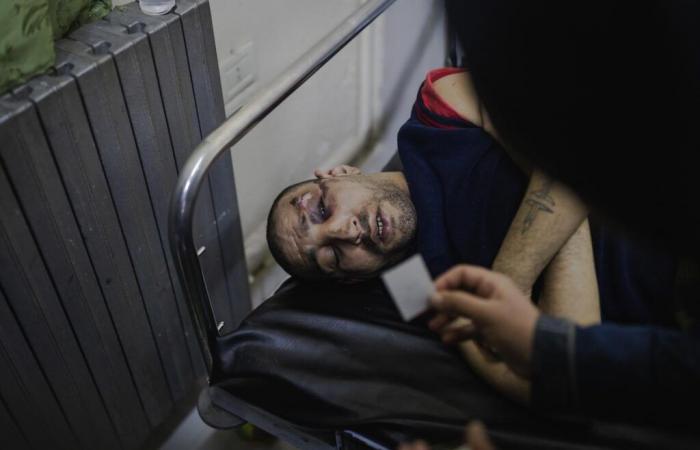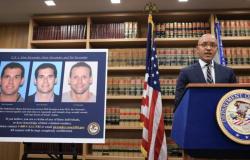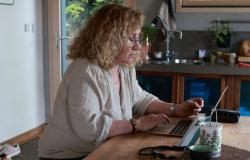The man is as if suspended between the world of the dead and that of the living, lying on a black leather bed at Al-Nafis hospital, in the Barzé district, in northern Damascus, Tuesday, December 10. His head resting on the palm of his hand, his gaze is lost in space and his mouth remains open. His left eye is swollen, his nose crushed by an old fracture. Other fractures to his spine and skull shattered his fragile, malnourished body. A skin disease is eating away at his legs.
Read also | Live, Syria: the Islamist rebels of the HTC, who took power in Damascus, announced that they had captured the city of Deir ez-Zor in the east of the country
Read later
Around fifteen people surround him, some with phones in their hands with the photo of a loved one who, like him, disappeared one day into the prison hell of the Assad clan. They haven't come back yet. “Have you seen my sons? Bassem and Ahmed Alala »shouts a Syrian man in his fifties, brandishing a portrait of his two children aged in their twenties, before their disappearance ten years ago.
“He doesn’t even remember his own name…”whispers a doctor who cannot hold back the crowd around the man. When he sometimes comes to his senses, the thirty-year-old makes disjointed remarks. “His name is Khaled Badawi. He was a soldier and deserted. He was arrested two years ago in Aleppo and transferred to [la prison de] Saydnaya. We haven't heard from him since.”said his brother, Tarek, stationed at the foot of the bed.
Also read the column | Article reserved for our subscribers “In Syria, the destruction of prisons illustrates the end of an era marked by repression and the crushing of society”
Read later
When he recognized him the day before, in a video that circulated on Facebook, Tarek immediately set off, with the whole family, from Aleppo, 350 kilometers further north. Only Khaled Badawi's two children, aged 3 and 5, and their mother, from whom he is separated, remained in Aleppo. “We are happy to have him back. He's a little better than yesterday.”continues Tarek. Two of their cousins, aged 24 and 34, are still missing, ten years after their arrest at a security checkpoint.
Inmates starved then abandoned by their jailers
Khaled Badawi was the first prisoner to arrive at Al-Nafis hospital at 7 a.m. on Sunday. He was released from Saydnaya, the sinister prison located twenty kilometers north of Damascus, described by the NGO Amnesty International as a “human slaughterhouse”at the time when the Syrian rebels led by Hayat Tahrir Al-Sham (HTC, Levant Liberation Organization, former branch of Al-Qaeda in Syria) seized Damascus. “We have received nine prisoners since the liberation. People found them wandering in the street and brought them to us.”says Bassel Al-Qosh, a 31-year-old neurologist.
You have 73.51% of this article left to read. The rest is reserved for subscribers.






